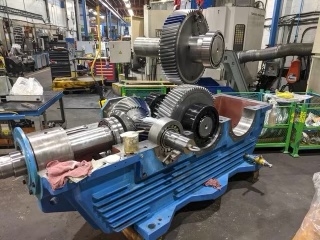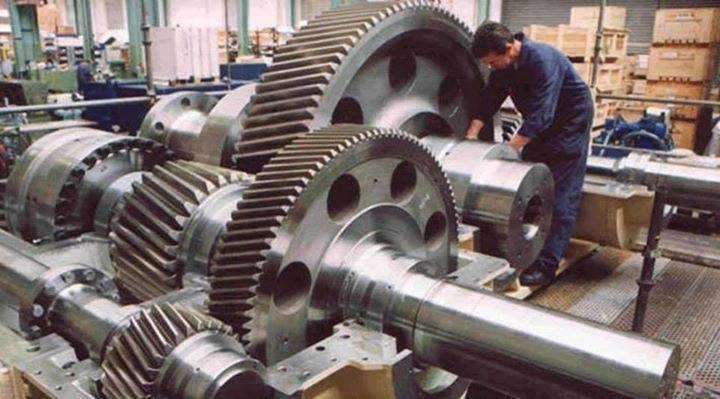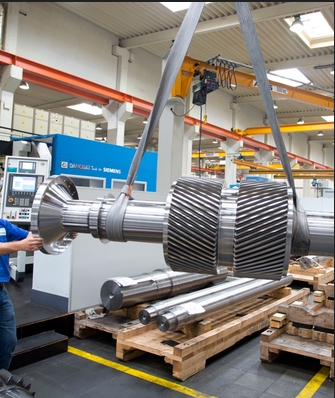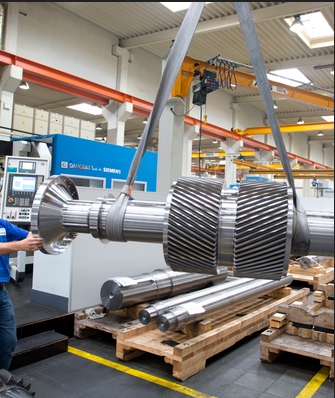

Ultrasonic welding horn refinishing improves the performance of the welding process by restoring the surface finish of the horn, which is crucial for achieving consistent and reliable welds. Refinishing helps to remove any imperfections or wear on the horn, ensuring proper energy transfer during the welding operation. This results in stronger welds, reduced cycle times, and overall improved efficiency in the welding process.
Common materials used for ultrasonic welding horn refinishing include abrasive stones, diamond files, polishing compounds, and specialized coatings. These materials are selected based on the specific requirements of the horn material and the extent of refinishing needed. Abrasive stones and diamond files are used for removing surface imperfections, while polishing compounds and coatings are applied to achieve the desired surface finish.
Tompkins County poised for manufacturing boom with Menlo Micro and Micron investments “Menlo Micro announced a significant investment of over $50 million to establish a fabrication facility in Lansing, near Ithaca, New York, signaling a major boost for the local manufacturing workforce.” Read more Plug Power wins $75 million grant from DOE “The Latham hydrogen … NYS Manufacturing and Tech News 3.11.24 Read More »
Posted by on 2024-03-15
We continue our blog series on the great work of our New York State assets in Advanced Materials across the state. This week, we feature the work of Rensselaer Polytechnic Institute (RPI) in Troy, NY, and their work on next generation building technology with an aim to decarbonize the built environment. This includes working with … Advanced Materials Strengths and Assets in NYS: Focus on Rensselaer Polytechnic Institute Read More »
Posted by on 2024-02-28
Embark on an enlightening exploration of New York’s economic transformation with special guest Alyson Slack from MRB Group, as we uncover the past and present of the state’s manufacturing sector. Together with FuzeHub’s Steve Melito we chart the course from a robust production history to a burgeoning service-oriented economy, all while acknowledging manufacturing’s lasting contributions … Podcast: Building Better Economies Read More »
Posted by on 2024-03-18
New $25M beauty manufacturing and innovation hub for Black- and women-owned businesses coming to Brooklyn Navy Yard “The Brooklyn Navy Yard is set to be home to a new $25 million state-of-the-art manufacturing, incubator, and accelerator facility focused on helping Black- and women-owned health and beauty businesses launch and grow in New York City.” Read … NYS Manufacturing and Tech News 3.4.24 Read More »
Posted by on 2024-03-08
In our third feature in our New York State Assets blog series on Advanced Materials, we focus on the groundbreaking work at the University at Buffalo. Their Department of Materials Design and Innovation focuses on accelerating lab discoveries into practical engineering applications. They are pioneering new approaches in material science education and research, leveraging technologies … Advanced Materials Strengths and Assets in NYS: Focus on University at Buffalo Read More »
Posted by on 2024-03-06
Ultrasonic welding horn refinishing can be done in-house by companies with the necessary equipment and expertise, or it can be outsourced to specialized companies that offer refinishing services. The decision to keep the process in-house or outsource it depends on factors such as cost, time constraints, and the availability of skilled personnel to perform the refinishing.

When selecting a vendor for ultrasonic welding horn refinishing, key factors to consider include the vendor's experience and expertise in working with different horn materials, the quality of their refinishing processes, turnaround time for refinishing jobs, cost of services, and customer reviews or testimonials. It is important to choose a vendor that can meet the specific requirements of your ultrasonic welding horns and provide consistent, high-quality results.
Different techniques or methods may be used for ultrasonic welding horn refinishing depending on the material of the horn. For example, softer materials may require gentler abrasive methods to avoid damage, while harder materials may need more aggressive techniques to achieve the desired surface finish. It is important to consider the material composition of the horn when selecting the appropriate refinishing method.

Ultrasonic welding horns should be refinished regularly to maintain optimal performance. The frequency of refinishing depends on factors such as the intensity of use, the type of materials being welded, and the condition of the horn. As a general guideline, it is recommended to inspect and refinish the horn periodically to ensure consistent weld quality and prolong the lifespan of the equipment.
Potential risks or drawbacks associated with ultrasonic welding horn refinishing include the possibility of over-refinishing, which can lead to changes in the horn geometry and affect the welding process. Improper refinishing techniques or materials can also cause damage to the horn, reducing its effectiveness and requiring costly repairs or replacements. It is important to follow proper refinishing procedures and work with experienced professionals to minimize these risks and ensure the best results.

A highly skilled technician specializing in CNC machining centers with complex tooling systems is capable of repairing and maintaining these advanced machines. These technicians possess expertise in areas such as spindle repair, axis alignment, tool changer troubleshooting, and control system diagnostics. They are trained to work with a variety of tooling systems, including automatic tool changers, rotary tables, and multi-axis setups. Additionally, they are familiar with a wide range of CNC machining processes, such as milling, turning, drilling, and grinding. With their in-depth knowledge of machine tool technology and precision engineering, these technicians can effectively diagnose and resolve issues to ensure optimal performance of CNC machining centers with complex tooling systems.
The process for refurbishing outdated manufacturing equipment typically involves a thorough assessment of the machinery's current condition, identifying any faulty components or outdated technology that need to be replaced or upgraded. This may include disassembling the equipment, cleaning and repairing any damaged parts, and installing new components to improve performance and efficiency. Additionally, the refurbishment process may involve updating software, recalibrating sensors, and conducting rigorous testing to ensure the equipment meets industry standards and regulations. Once the refurbishment is complete, the equipment is reassembled, tested, and certified for use in manufacturing operations. This comprehensive approach to refurbishment helps extend the lifespan of outdated equipment, reduce downtime, and improve overall productivity in manufacturing facilities.
The company specializes in providing comprehensive repairs for heat exchangers commonly utilized in manufacturing processes. These specialized services include diagnosing and addressing issues such as corrosion, fouling, leaks, and pressure drops in heat exchangers. The team of skilled technicians is trained to work on a variety of heat exchanger types, including shell and tube, plate and frame, and air-cooled heat exchangers. By utilizing advanced techniques and tools, the company can efficiently restore heat exchangers to optimal performance levels, ensuring smooth operation within manufacturing facilities. Additionally, the company offers preventative maintenance programs to prolong the lifespan of heat exchangers and minimize downtime.
Industrial chiller maintenance services typically include tasks such as regular inspections, cleaning of condenser coils, checking refrigerant levels, monitoring for leaks, adjusting controls, calibrating sensors, lubricating moving parts, replacing worn-out components, testing safety features, and conducting performance evaluations. Additionally, preventive maintenance measures may involve analyzing system efficiency, optimizing energy consumption, implementing predictive maintenance strategies, and ensuring compliance with industry regulations. Proper maintenance of industrial chillers is crucial to prevent breakdowns, extend equipment lifespan, improve operational efficiency, and minimize downtime. Specialized technicians with expertise in refrigeration systems are often employed to perform these maintenance tasks to ensure optimal performance and reliability of industrial chillers.
Professional CNC lathe repair technicians have the expertise to service a wide range of specific models, including but not limited to Mazak, Haas, Okuma, Mori Seiki, and Doosan lathes. These technicians are trained to diagnose and troubleshoot issues with spindle motors, ball screws, tool changers, and other components of CNC lathes. They are skilled in performing preventative maintenance, replacing worn parts, and calibrating machines to ensure optimal performance. By staying up-to-date on the latest technologies and techniques in CNC lathe repair, these technicians can effectively address any issues that may arise with specific models of CNC lathes.
Yes, the company offers repairs for specialized stamping presses, including maintenance, troubleshooting, and replacement of parts such as dies, punches, and feeders. Our team of experienced technicians is trained to work on various types of stamping presses, including mechanical, hydraulic, and servo-driven machines. We understand the importance of keeping these precision machines in optimal condition to ensure efficient production processes and high-quality stamped products. Whether it's addressing issues with alignment, lubrication, or electrical components, our repair services are designed to meet the specific needs of each customer's stamping press equipment. Contact us today for expert assistance with your specialized stamping press repair needs.